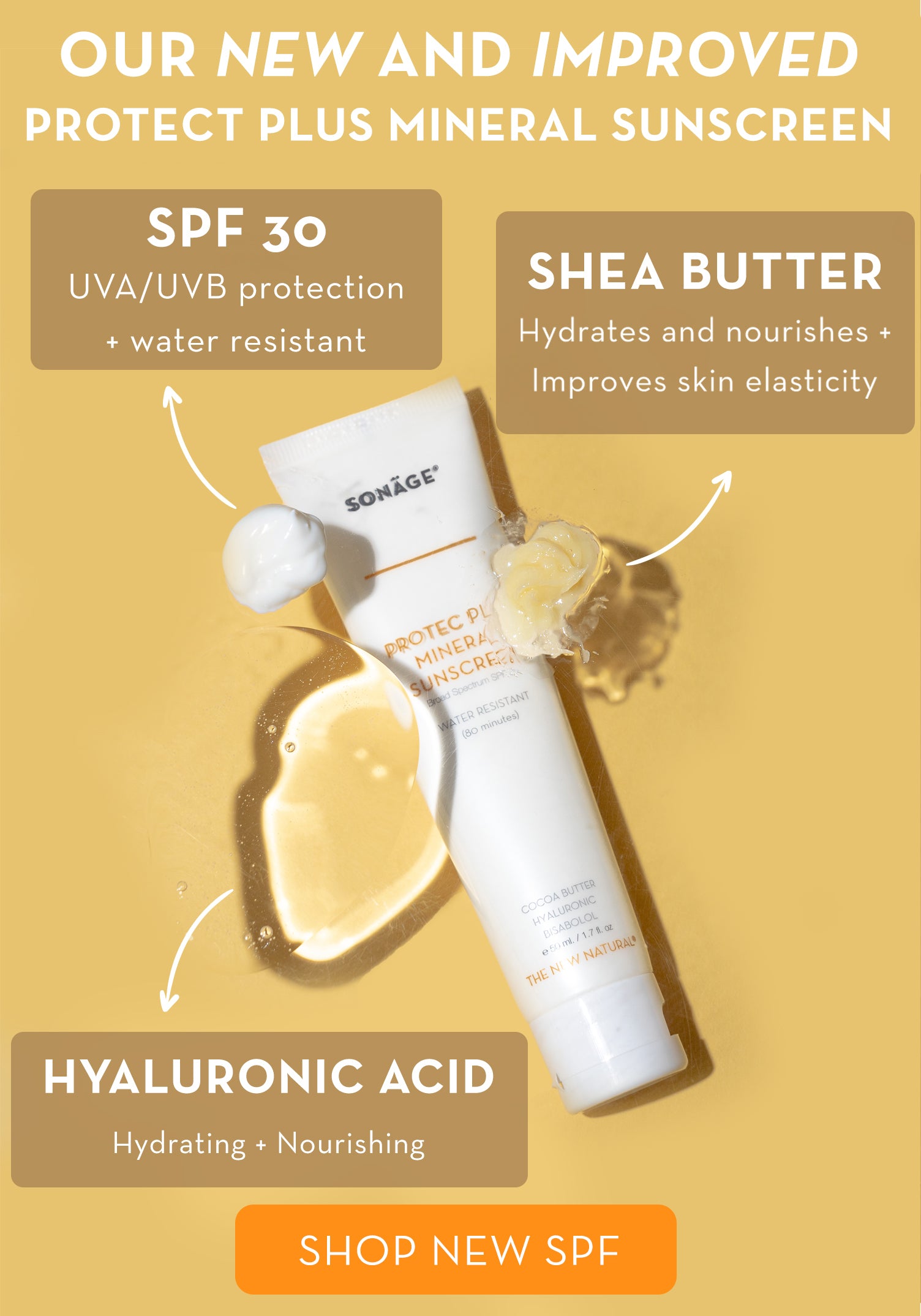AT A GLANCE
-
WHAT IT IS
It's important to choose the correct sunscreen that will help protect your skin from harmful UV rays -
WHAT IT DOES
The differences between natural and chemical sunscreen vary and can be taxing to your skin and the environments, so it's important to use sunscreens to protect your skin -
HOLY GRAIL PRODUCTS
Protec Plus Mineral Sunscreen SPF 30
Natural vs Chemical Sunscreen For Face
 The sun isn’t always your skin’s friend, it’s important to protect yourself from harmful UVA/UVB rays. But lathering up in chemical-rich sunscreen could also be doing your skin more harm than good.
The sun isn’t always your skin’s friend, it’s important to protect yourself from harmful UVA/UVB rays. But lathering up in chemical-rich sunscreen could also be doing your skin more harm than good.  Our skin begins to absorb what we put on it in just 26 seconds, including the chemicals used in conventional sunscreens. Oxybenzone, avobenzone, octinoxate, octisalate, homosalate and 4-methylbenzylidene camphor are the chemicals to watch out for, many of which are known hormone disruptors, carcinogens and are tied to the destruction of coral reefs. These chemicals absorb the harmful rays into your skin, break them down into heat, and dissipate the heat from your skin into the air.
Our skin begins to absorb what we put on it in just 26 seconds, including the chemicals used in conventional sunscreens. Oxybenzone, avobenzone, octinoxate, octisalate, homosalate and 4-methylbenzylidene camphor are the chemicals to watch out for, many of which are known hormone disruptors, carcinogens and are tied to the destruction of coral reefs. These chemicals absorb the harmful rays into your skin, break them down into heat, and dissipate the heat from your skin into the air.
Natural, mineral-based sunscreens contain ingredients Zinc Oxide and Titanium Dioxide which create a barrier on your skin which scatter and reflect broad-spectrum UVA/UVB rays instead of absorbing them. They’re also safe for your skin and are coral reef friendly! It’s time to soak up some sun minus synthetics.

 Ultraviolet light can be damaging to your skin on even the cloudiest of days, so whether you’re headed to the office or to the beach, don't forget your SPF. Sunscreen should always be applied after your moisturizer but before your makeup. It is more effective to pat natural sunscreen on the skin, rather than rubbing it in; this results in a more even application and less skin irritation. Our Protec Plus Natural SPF is formulated to be the perfect companion to your daily routine
Ultraviolet light can be damaging to your skin on even the cloudiest of days, so whether you’re headed to the office or to the beach, don't forget your SPF. Sunscreen should always be applied after your moisturizer but before your makeup. It is more effective to pat natural sunscreen on the skin, rather than rubbing it in; this results in a more even application and less skin irritation. Our Protec Plus Natural SPF is formulated to be the perfect companion to your daily routine


Hydrate Set for Dryness and Fine Lines


Roux Tinted Day Creme with SPF 30





